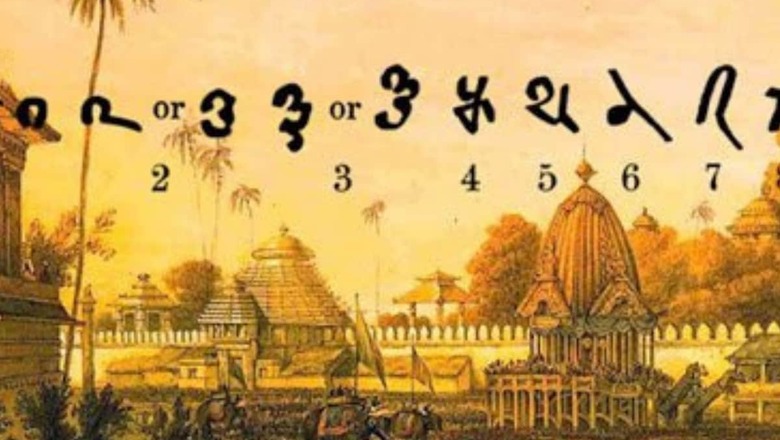
views
Ancient Indian literature is a treasure trove of eternal wisdom and knowledge, all of which is still relevant in the modern world. However, for decades, India has failed to embrace its ancient heritage and knowledge systems, and has continued educating students in a system handed over to us by our erstwhile colonial rulers.
That is fast changing, and students pursuing higher education in India will soon have to opt for Indic knowledge courses to learn about the country’s ancient scientific, philosophical and literary prowess. The goal is not just to learn about Indian Knowledge Systems, but to also apply the learnings in the contemporary times we live in.
More than 1,000 university teachers across the country are being equipped to teach courses on Indian knowledge systems at the undergraduate and postgraduate levels from the next academic session. This is part of UGC’s plan of starting two credit courses giving an overview of Indian culture and traditions in the first years of both the UG and PG programmes in varsities across the country.
UGC intends to train 15 lakh teachers over the next two years, as part of a big Modi government push towards mainstreaming ancient Indian knowledge systems and popularising them at a time when the country is shedding colonial legacies and symbols.
The bulk of India’s modern education curricula does not lay significant emphasis on ancient Indian Knowledge Systems (IKS). The first concrete step to decolonise and indigenise India’s education system and curricula came only with the National Education Policy, 2020. NEP 2020 recommends induction of IKS at all levels of education.
NEP 2020 says for purposes of cultural enrichment and national integration, all young Indians should be aware of the rich and vast array of languages of their country and the treasures that they and their literature contain. In order to comply with the National Education Policy’s recommendations, the University Grants Commission has been focussing on creating an ecosystem in universities and higher educational institutions where Indian Knowledge Systems can prosper.
The UGC’s training for university teachers focusses on concepts like parampara (tradition), drishti (perspective), and loukik prayojan (modern relevance) of ancient Indian knowledge systems. The training is expected to conclude by the end of October.
UGC has organised training programmes for teachers in six cities so far: Nagpur, Chennai, Varanasi, Srinagar, Guwahati, and Delhi. With the training programmes being completed by the end of this month, the UGC is planning to begin the rollout of relevant courses on Indian knowledge systems from the next academic session.
In order to push for the popularisation and mainstreaming of Indian Knowledge Systems, a separate IKS cell was created under the Ministry of Education to promote interdisciplinary research on all aspects of IKS and preserve and disseminate the same for further research and societal applications.
In April this year, the UGC had released draft guidelines for the incorporation of the Indian knowledge systems in the curricula of all UGC-recognised universities and institutions. UGC had recommended that every student in UG and PG courses be encouraged to take credit courses in the Indian knowledge systems, amounting to at least five per cent of the total mandated credit.
Students enrolled in UG programmes in medicine, for example, will be required to study the Indian system of medicine, including Ayurveda, Yoga, Unani, Homeopathy, and Siddha, in their first year.
As a follow up to its efforts of pushing for IKS courses, the UGC had in June started an online course for Indian Knowledge System. This online course is divided into three parts: engineering, science and technology; humanities and social sciences.
India Makes Indic Knowledge Push at the Right Time
British rule has left an indelible mark on India – which is still reflected in the country’s education system – more specifically in the curricula. India is the civilisation that has pioneered several fields of knowledge, from sciences to philosophy to even the cosmos. India’s diverse heritage in terms of knowledge systems has evolved over thousands of years, and can be very relevant to the modern times we live in. Unfortunately, an earnest effort to incorporate IKS into the Indian education system has begun only recently.
India has guided the world for millennia. Repeated invasions, however, bogged down the reach and impact of India’s diverse and sophisticated knowledge heritage. As India aspires to be a developed nation by 2047, and has already assumed a major role at the global stage, this is the perfect time for it to rediscover its rich educational and scientific heritage.
The fact that India has become a major world player whose influence and heft is only on the rise, introducing the IKS into higher education now can attract international students seeking to explore the depth and wisdom of India’s traditional knowledge systems.
It is important to remember that IKS is in no way replacing contemporary curriculum. In fact, the idea is to supplement contemporary curriculum with IKS in order to promote a uniquely enriched higher education system that celebrates India’s cultural heritage.
Recently, the Indian Army had unveiled Project Udbhav to rediscover the “profound Indic heritage of statecraft and strategic thoughts” derived from ancient Indian texts of “statecraft, warcraft, diplomacy and grand strategy”. By reintroducing these classical teachings into contemporary military and strategic domains, the Army aims to nurture its officers to apply ancient wisdom in modern scenarios and also allow a more profound understanding of international relations and foreign cultures.
At a time when India is working overtime to become Aatmanirbhar, it only makes sense for our education system to take inspiration from our rich civilisational and cultural heritage. Once rolled out, Indian Knowledge Systems will inspire confidence among Indian students – who will realise that what the world discovered only recently was known to Indian scholars millennia ago.
Views expressed in the above piece are personal and solely that of the author. They do not necessarily reflect News18’s views.




















Comments
0 comment